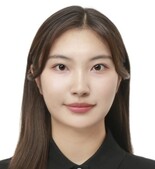
In a growing trend, consumers overseas are turning to Korean seaweed snacks and miyeok (sea mustard) as a delicious and natural way to supplement their iodine intake. While traditionally consumed as a staple food in Korea, products like gim (laver) and miyeok are now gaining recognition globally as a convenient and flavorful alternative to health supplements or even medicine.
This newfound demand is evidenced in places like Pakistan, where seaweed snacks are being sold in pharmacies rather than just grocery stores. This unique distribution channel suggests that intermediaries are specifically marketing the product for its health benefits. According to CJ CheilJedang, the company behind the popular "Bibigo" brand, they have not yet officially entered the Pakistani market, which highlights the grassroots nature of this trend. A local TV broadcast in Pakistan last year even encouraged viewers, stating, “It’s no longer strange to see Korean seaweed in pharmacies. Since it’s difficult to get iodine through our food, eating Korean seaweed as a healthy snack is a great idea.”
The Global Struggle with Iodine Deficiency
Pakistan is one of the countries most affected by iodine deficiency, with UNICEF reporting that a majority of its population lacks sufficient intake. This isn't just a problem in developing or landlocked nations. Australia and New Zealand mandated iodine fortification in bread in 2009 to combat the issue. Despite these efforts, the World Health Organization (WHO) estimates that one-third of the global population still doesn't get enough iodine.
The consequences of iodine deficiency are significant. The WHO identifies it as the most common cause of intellectual disability in children. In pregnant women, a lack of iodine can negatively affect the neurocognitive development of the fetus. For the general population, iodine is a vital mineral for producing thyroid hormones. A deficiency can lead to thyroid dysfunction, causing conditions like hypothyroidism or hyperthyroidism.
Korean Seaweed: A Nutritional Powerhouse
The answer to this global problem may lie in the very food that is a part of the everyday Korean diet. Seaweed is a rich source of iodine, especially the varieties commonly consumed in Korea, such as gim, miyeok, and dashima (kelp). Korea, a peninsula with coasts on three sides, is a country with one of the highest per-capita iodine intakes in the world, largely due to its high consumption of seafood.
However, too much of a good thing can also be a problem. Medical experts warn against excessive iodine intake, which can also lead to thyroid issues. The Korean Ministry of Food and Drug Safety recommends a daily intake of 150 µg for adults, with an upper tolerable limit of 2,400 µg.
A Contradictory Local Concern
While the world is embracing Korean seaweed, some consumers in Korea have become concerned about their own iodine intake, fueled by the spread of misinformation and a recent product recall. In April, a popular health supplement was recalled for containing a different amount of iodine than what was stated on the label, even though it was still well within the daily recommended limit. This action, though a result of a labeling violation, heightened consumer fears about excessive iodine consumption.
Kim Seon-young, a pharmacist and popular YouTuber known as "Pharmacist Squid," addressed these concerns, stating on YTN NewsFM that the average daily iodine intake for Koreans is around 400 µg. She explained that it's highly unlikely for side effects to occur from excessive intake unless someone consumes an abnormally large amount of miyeok soup over a prolonged period. The notion that eating a lot of gim and miyeok can cause thyroid cancer is also dismissed by experts as baseless. For healthy adults, eating seaweed as part of a regular diet is generally not a cause for concern.
Beyond iodine, Korean seaweed is a nutritional powerhouse. It is rich in dietary fiber, calcium, and vitamins A and C, making it a truly healthy food that is now gaining well-deserved global recognition.
[Copyright (c) Global Economic Times. All Rights Reserved.]






























